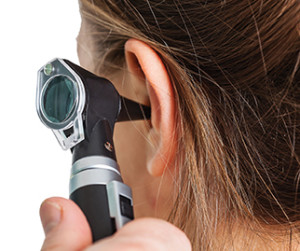Hearing Loss, Tequila & Osteoporosis, MS Research, Violent Video Games
Posted on May 2, 2016 by bob in NewsUCanUse
Hearing Loss = Higher Healthcare Costs
The costs of healthcare for privately insured individuals with and without hearing loss was compared in a recent study by the Medical University of South Carolina. The results indicate those with hearing loss have much higher healthcare costs overall.
the Medical University of South Carolina. The results indicate those with hearing loss have much higher healthcare costs overall.
Age-related hearing loss affects more than 60% of U.S. adults 70 and older, with a gradual onset that triples between age 50 and 60. The study looked at hearing loss in adults 55-64, concluding that “…age-related hearing loss, a condition that many consider simply an unavoidable result of aging, may manifest earlier than is generally recognized.”
The study suggests “…hearing loss is costly, even in middle-aged individuals, and is present in large numbers of adults for whom early, successful intervention may prevent future hearing-related disabilities and decreased quality of life.”
— JAMA Otolaryngology-Head & Neck Surgery
Tequila & Osteoporosis?
Apart from being the raw material for making tequila, the blue variety of the Agave tequilana has substances capable of  improving the absorption of calcium and magnesium, essential minerals to maintain bone health. This has been demonstrated by a Mexican research study conducted at the Center for Research and Advanced Studies. The project leader stated “…the consumption of fructans contained in the agave, in collaboration with adequate intestinal microbiota, promotes the formation of new bone, even with the presence of osteoporosis.”
improving the absorption of calcium and magnesium, essential minerals to maintain bone health. This has been demonstrated by a Mexican research study conducted at the Center for Research and Advanced Studies. The project leader stated “…the consumption of fructans contained in the agave, in collaboration with adequate intestinal microbiota, promotes the formation of new bone, even with the presence of osteoporosis.”
The results provide the possibility of developing an alternative in the treatment of osteoporosis, a disease that, according to the latest statistics from the International Osteoporosis Foundation, affects 200 million people worldwide. In people 50 and older, one out of five fractures is related to the disease.
— Center for Research and Advanced Studies,
National Polytechnic Institute, Mexico City
Earplugs, Loud Music & Hearing Loss
The prevalence of acquired hearing loss has risen in past years. A U.S. study found adolescents with hearing loss has risen  31% since 1988, much of it due to increased exposure to recreational noise such as concerts, festivals and nightclubs. Music at these events can reach 100-110 decibels (dB) for several hours, exposure known to cause temporary hearing loss. (NOTE: 110 dB is equivalent to a revved-up chainsaw or having your ear within three feet of a blaring auto horn.)
31% since 1988, much of it due to increased exposure to recreational noise such as concerts, festivals and nightclubs. Music at these events can reach 100-110 decibels (dB) for several hours, exposure known to cause temporary hearing loss. (NOTE: 110 dB is equivalent to a revved-up chainsaw or having your ear within three feet of a blaring auto horn.)
A study from the Netherlands followed a group of music festival attendees, half of whom wore earplugs and half who did not. Temporary hearing loss measurements following the festival found 8% of the group wearing earplugs with a measurable hearing loss compared to 42% of the group without earplugs. A lower percentage of the earplug group (12%) reported tinnitus following exposure vs. 40% of the unprotected group. The study concluded that the use of earplugs should be actively promoted and encouraged by festival organizers to avoid noise-induced hearing loss.
— University Medical Center Utrecht, the Netherlands
Multiple Sclerosis Research
An international research team has demonstrated that a new plant-derived drug can block the progression of multiple  sclerosis (MS). MS is a chronic incurable condition marked by attacks that bring gradual deterioration in the patient’s health. About 2.5 million people worldwide have MS.
sclerosis (MS). MS is a chronic incurable condition marked by attacks that bring gradual deterioration in the patient’s health. About 2.5 million people worldwide have MS.
University of Queensland researcher Dr. Christian Gruber said the breakthrough could be a step forward in preventing and treating MS and other autoimmune diseases. The new drug is expected to be taken by mouth, in contrast to some current MS treatments where patients need frequent injections.
The new drug — named T20K — was extracted from a traditional medicinal plant, the Oldenlandia affinis. Treatment has been successful in an animal model, and patent applications have been filed in several countries. Phase one of clinical trials is expected in early 2018.
— University of Queensland School
of Biomedical Sciences
Violent Video Games Reduce Guilt
Rapidly advancing technology has created ever more realistic video games. Images are sharp, settings have depth and  detail, and the audio is crisp and authentic. At a glance, it appears real So real, in fact, research has consistently found gamers feel guilty committing unjustified acts of violence within the game.
detail, and the audio is crisp and authentic. At a glance, it appears real So real, in fact, research has consistently found gamers feel guilty committing unjustified acts of violence within the game.
A University at Buffalo-led study suggests the moral response produced by the initial exposure to video game violence decreases as experience with the game develops. The findings provide the first experimental evidence that repeatedly playing the same violent game reduces emotional responses — like guilt — not only to the original game, but to other violent video games as well.
The study author says the reasons for this desensitization are unclear. One possibility is that repetitive play reduces a gamer’s sensitivity to guilt-inducing stimuli.
— Published in Media Psychology. University at Buffalo









